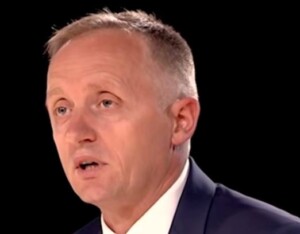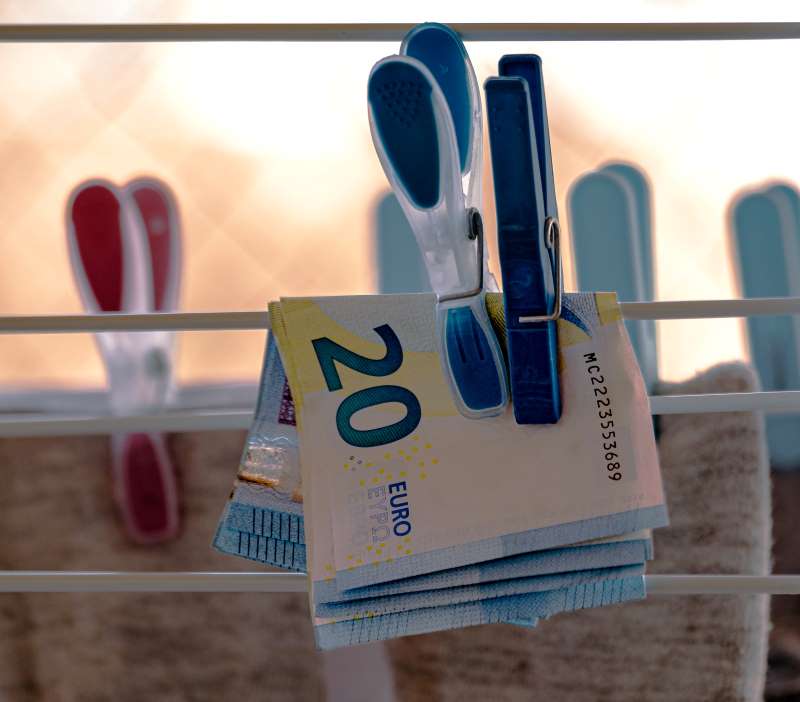There will come a day in Albania when high officials who are involved in corruption scandals will be investigated, tried and convicted. But, that day is not in the near future, as long as in the net of justice only small fish is being hunted.

Lutfi Dervishi
In the 125 pages of the annual report for 2020 by the European Commission for Albania, a voluminous material that scans and analyzes the situation of the country facing the 35 negotiating chapters, the word “(anti)corruption” is mentioned 90 times!
According to Transparency International (TI) – Albania is ranked the last in Europe when it comes to anti-corruption. With a score of only 35 (out of the total 100), Albania has dropped 23 places in the rank for just the last three years. TI considers that corruption there is endemic, and that it affects even the high levels of governance.
According to the last annual report of the European Commission, corruption in Albania is widespread and it remains “a serious concern”. For many years, one of the main challenges in the fight against corruption remains the impunity of high officials.
Media write about the corruption; politicians make ping-pong charges to each other about it, but it is the justice the one that says the final word.
When it comes to the judicial system, Albania is a unique case.
Albania has started an unprecedented reform in the judicial system. A reform that aims on cleansing the judiciary, and reformatting the justice institutions.
With the approval of all the MPs, the Constitution was changed in July of 2016, and this gave a significant role to the IMO (International Monitoring Operation).
800 prosecutors and judges are undergoing the vetting process, a very detailed analyze that scans not only their wealth, but also their professionalism and integrity. 4 years after the constitutional changes happened, the results are mixed. More than 50% of the judges and prosecutors that have been through the vetting process did not pass the test. The cleansing is happening, but the price of this unique operation is very high. The high level judges did not pass the vetting process successfully. The country is without a functional Constitutional Court and without a Supreme Court. As a result of the vetting process, the functionality of the Court of Appeals is also threatened.
The enthusiasm for judicial reforms is replaced by the actual realization of it, and today it is accepted that the process is complicated, inevitable, but also needs time.
One of the main conditions for Albania to start the negotiation process with the European Union is to have a functional Constitutional Court.
The hope that the culture of impunity is coming to an end now it relies on the new judicial institutions, namely on Special Prosecution Against Corruption and on Court Against Corruption and Organized Crime. The new institutions, still incomplete, have started their work, but the first tried cases seem as very unreliable: investigation and conviction of cases from very low levels of the governance. The hunt for “the big fish”, a thing for which the citizens have high expectations, it has not happened yet.
How can corruption be fought when the country does not have neither a functional Constitutional Court, nor a Supreme Court? Can Albania really report about high level corruption cases that were investigated, tried and convinced? Albanians are addressing the European Court of Human Rights in Strasbourg for the cases they cannot solve at the Supreme Court in Albania, and the politics due to the absence of the Constitutional Court is addressing the Venice Commission to get an opinion for issues that violate the Constitution.
The fight against corruption and organized crime requires a clear political will and an independent and functional judicial. There will come a day in Albania when high officials who are involved in corruption scandals will be investigated, tried and convicted. But, that day is not in the near future, as long as in the net of justice only small fish is being hunted.
Lutfi Dervishi is a host of the weekly show “Përballë” on the Albanian National Radio Television. He is a trainer at the Albanian Media Institute. For many years he is a visiting lecturer at the University of Tirana, Department of Journalism and Communication, for the class “Investigative Jorunalism”.



Leave A Comment